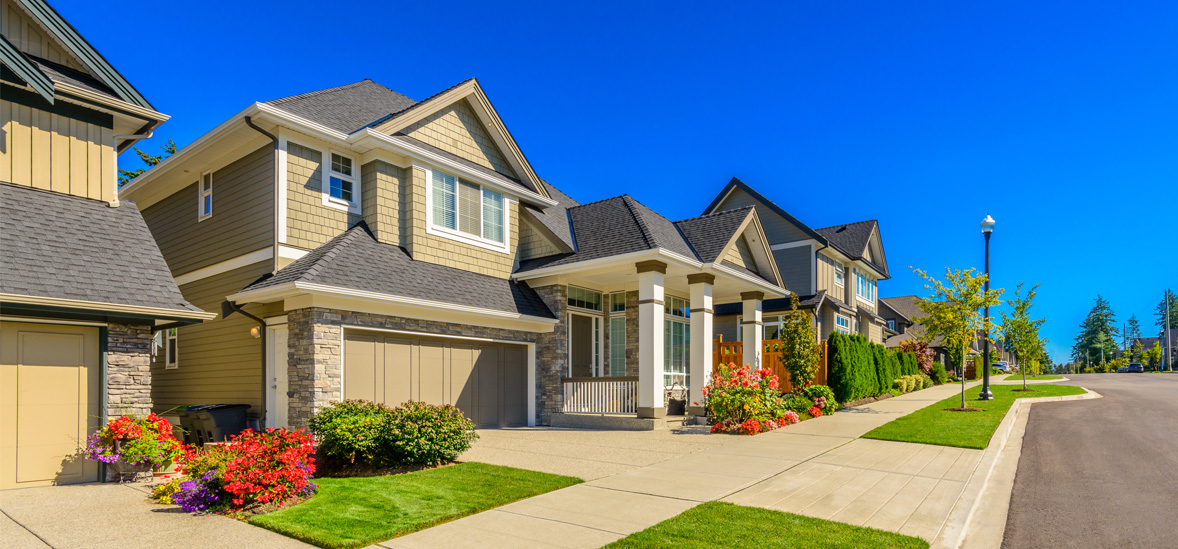The Vital Duty of HOA Administration in Upholding Area Standards and Laws
Homeowners Associations (HOAs) serve a pivotal feature in keeping area requirements and policies, serving as the guardian of shared worths and aesthetic appeals within neighborhoods. Their duties extend past simple enforcement; they promote a feeling of belonging and accountability amongst residents. By diligently managing standards and dealing with non-compliance, HOAs not just protect residential or commercial property values but additionally cultivate a setting where interaction and partnership can thrive. Nonetheless, the efficiency of these management techniques raises important questions concerning administration, resident involvement, and the equilibrium between policy and personal flexibility. What effects do these characteristics hold for the future of area living?
Relevance of HOA Monitoring
The importance of effective HOA management can not be overemphasized, as it plays a vital function in maintaining the overall quality and allure of an area. House Owners' Associations (HOAs) serve as the backbone of property communities, supplying framework and company that cultivates an unified living setting. Through effective administration, HOAs make certain that community standards are supported, thus safeguarding property values and boosting residents' lifestyle.
A well-managed HOA can facilitate open interaction among citizens, address grievances quickly, and develop a sense of belonging. It develops rules and guidelines that reflect the neighborhood's values, making certain constant upkeep of shared areas and facilities. Additionally, reliable monitoring aids in monetary planning and resource allowance, which is essential for the sustainability of community tasks and maintenance.
Moreover, an efficient HOA can promote area engagement by organizing events and promoting partnership amongst residents - austin hoa management. This not only reinforces partnerships but additionally encourages energetic engagement in decision-making processes. Ultimately, efficient HOA management is essential for growing a lively, appealing, and natural community that satisfies the needs and expectations of its citizens
Secret Duties of HOAs
Regularly, House Owners' Associations (HOAs) presume a variety of key duties that are necessary for the smooth operation and maintenance of an area. One of the main duties of HOAs is to take care of the monetary aspects of the area, consisting of budgeting, gathering fees, and maintaining get funds for future fixings and enhancements. This financial oversight makes sure that the community remains properly maintained and lasting.
Furthermore, HOAs are accountable for preserving common locations, such as parks, swimming pools, and landscape design. This entails normal maintenance, repair work, and improvements to ensure these rooms remain practical and eye-catching for residents. Interaction is also a crucial facet of HOA responsibilities; they should maintain homeowners educated about community news, upcoming meetings, and changes to policies or guidelines.

Additionally, HOAs frequently help with area events and tasks, promoting a feeling of belonging and involvement amongst locals. They might additionally manage management jobs, consisting of record-keeping and compliance with state and neighborhood policies. With these responsibilities, HOAs play a crucial role in advertising a cohesive and well-managed community, inevitably improving building values and residents' lifestyle.

Enforcing Area Specifications
To maintain an unified living atmosphere, HOAs play an essential role in enforcing area standards. These requirements, usually laid out in regulating files such as the Affirmation of Restrictions, agreements, and problems (CC&R s), are made to protect building worths, guarantee visual uniformity, and advertise a sense of neighborhood amongst citizens. HOAs should make certain that all property owners adhere to these guidelines to create a well-maintained community.
Enforcement systems can vary, yet typically involve normal inspections of homes, interaction with homeowners regarding violations, and the charge of penalties for non-compliance. Such steps may consist of penalties, requests for restorative action, or, in extreme instances, legal process. An aggressive technique to enforcement not only deters potential violations but additionally promotes a society of responsibility among homeowners.
In addition, transparency in the enforcement procedure is vital. HOAs ought to plainly interact requirements, consequences, and assumptions to all home owners. This clarity assists to minimize misconceptions and makes certain that citizens know their obligations. Eventually, reliable enforcement of neighborhood criteria by HOAs is vital for maintaining the general top quality of life within the neighborhood and promoting the worths that citizens have actually invested in their homes.
Problem Resolution Techniques
Efficient dispute resolution methods are essential for maintaining a serene and participating area within homeowners' associations (HOAs) HOAs typically act as the first line of defense in attending to disagreements that develop among locals. Executing proactive interaction methods is vital; this includes establishing clear channels for homeowners to voice problems and complaints. Normal conferences and neighborhood forums can promote open discussion, permitting participants to express their point of views and look for good understanding.
Furthermore, arbitration plays a significant function in resolving conflicts (austin hoa management). Neutral third-party arbitrators can help promote discussions and guide events towards a my latest blog post collective service. This approach stresses compromise and promotes a sense of area, instead of allowing conflicts to intensify into controversial confrontations
Additionally, developing and imposing a clear collection of regulations and procedures for dealing with problems is important. These standards must be connected effectively to all citizens, ensuring everyone understands the process for lodging problems and seeking resolution. Supplying dispute resolution training for board members and community leaders equips them with the required skills to take care of disagreements properly, guaranteeing that conflicts are dealt with amicably and in accordance with the community's read the article laws and standards.
Enhancing Residential Property Worths
Preserving harmonious partnerships among citizens not only cultivates a feeling of community however likewise plays a significant duty in improving residential property worths within house owners' associations (HOAs) Reliable HOA management ensures that neighborhood standards and laws are maintained, creating an atmosphere where residential property upkeep is focused on. Well-maintained common areas, adherence to building guidelines, and punctual enforcement of guidelines add to an attractive area that draws in possible purchasers.

Additionally, normal maintenance and enhancement jobs, such as landscape design and facility upgrades, reflect positively on property worths. HOAs that efficiently take care of budget plans to money these efforts demonstrate a dedication to long-term value conservation.
Ultimately, an HOA that focuses on community connections and property requirements develops a preferable living setting. This not only benefits existing residents yet also positions the neighborhood positively in the real estate market, making certain that residential or commercial property worths continue to be attractive and robust to future house owners.
Verdict
In conclusion, HOA management is vital for keeping area standards and regulations, therefore cultivating a harmonious living environment. Through the enforcement of guidelines, regular residential property examinations, and effective conflict resolution approaches, HOAs play a critical function in improving residential property worths and promoting openness amongst citizens. The aggressive procedures applied by HOAs not just secure the visual stability of communities however likewise add to a cohesive atmosphere that supports open communication and partnership among all residents.
Via reliable management, HOAs ensure that neighborhood criteria are maintained, therefore shielding property worths and boosting homeowners' quality of life.
Via these duties, HOAs play a crucial function in promoting a cohesive and well-managed area, eventually enhancing home worths and residents' high quality of life.
Ultimately, efficient enforcement of community requirements by HOAs is important for keeping the general high quality of life within the neighborhood and promoting the values that residents have actually spent in their homes.
Supplying conflict resolution training for board participants and community leaders equips them with the required abilities to manage disagreements efficiently, guaranteeing that conflicts are resolved amicably and in conformity with the community's guidelines and standards.
Preserving unified connections amongst homeowners not only promotes a feeling of neighborhood but likewise plays a significant function in boosting building values within home owners' associations (HOAs)